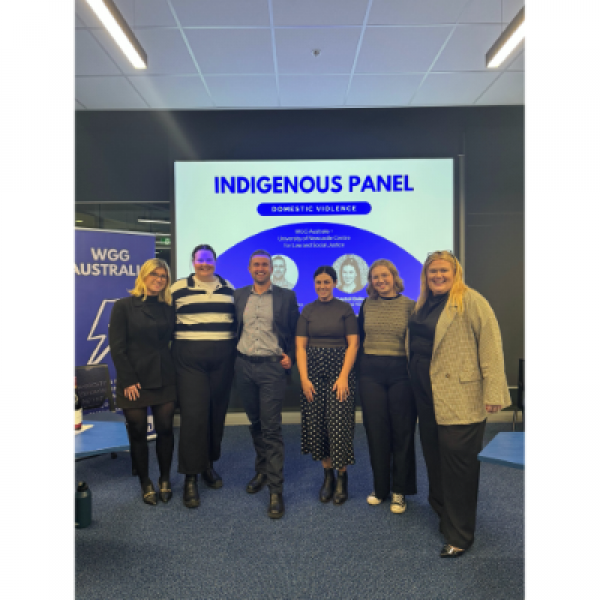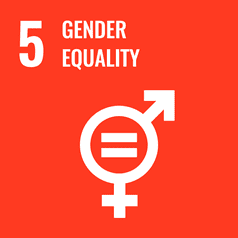Domestic Violence and Indigenous Women
On Wednesday 9 October, the University of Newcastle's Centre for Law and Social Justice co-hosted a panel with We Gotchu Girl (WGG) on domestic violence and Indigenous women.

Several key themes were addressed by the panellists, Shantell Bailey (Legal Aid) and Adam Checkley (Aboriginal Legal Service):
Challenges in Accessing Legal Support:
Adam highlighted that Aboriginal and Torres Strait Islander women face disproportionately high rates of domestic violence, being 31 times more likely to be hospitalised than the general population. Legal systems have historically let down these communities, with many finding the Court system overwhelming. Additionally, housing and Centrelink issues often force women back into abusive situations. Shantell noted structural barriers within the legislation, including housing risks and the reluctance of Aboriginal and Torres Strait Islander women to share details of abuse due to cultural factors like shame and mistrust of the legal system.
Mistrust of Legal Institutions:
Both speakers acknowledged that mistrust of the legal system stems from its historical role in displacing Aboriginal and Torres Strait Islander peoples. To build trust, legal professionals need to engage directly with communities, establish outreach and referral networks, and adapt their communication to meet client needs. Adam emphasised that mistrust is often mistaken for disinterest, which further alienates the community.
Law Enforcement’s Role:
Adam’s background in law enforcement gives him insight into what police should be doing. He noted that police can become desensitised to the trauma in domestic violence cases due to the sheer volume of reports. Shantell stressed the need for police reform, particularly regarding protections for women under the Residential Tenancies Act, which currently offers limited support.
Systemic Barriers and Reforms:
Shantell called for reforms in housing availability, as limited options prevent women from leaving abusive situations. The current waitlists and priority lists are full, and more suitable housing is needed. She also discussed the limited protections under the Residential Tenancies Act for women experiencing domestic violence.
Improving Legal Services for Indigenous Women:
Both panellists emphasised the need for better community policing and collaboration with Aboriginal and Torres Strait Islander controlled organisations. They highlighted the importance of not imposing solutions on communities without consultation and respecting clients' expertise in their own lives. Advocacy should avoid creating unrealistic expectations or the notion of a "perfect victim-survivor."
The panel underscored the need for trust, cultural awareness, and systemic reform to address the specific challenges faced by Indigenous women in domestic violence situations.
Related news
The University of Newcastle acknowledges the traditional custodians of the lands within our footprint areas: Awabakal, Darkinjung, Biripai, Worimi, Wonnarua, and Eora Nations. We also pay respect to the wisdom of our Elders past and present.
